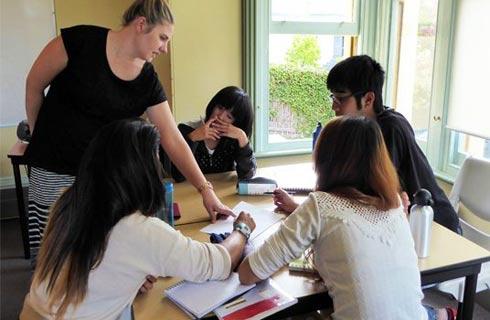MBiolSci Biological Sciences (Physiology with Pharmacology)

学历文凭
Bachelor Degree

专业院系
School of Biological Sciences

开学时间

课程时长

课程学费

国际学生入学条件
IDP—雅思考试联合主办方

雅思考试总分
- 雅思总分:
- 托福网考总分:
- 托福笔试总分:
- 其他语言考试:
CRICOS代码: B1B3
申请截止日期: 请与IDP联系 以获取详细信息。
课程简介
相关申请
 预科
预科 奖学金
奖学金 实习机会
实习机会 在校学习
在校学习 跨境学习
跨境学习 校园授课-线上开始
校园授课-线上开始 在线/远程学习
在线/远程学习
开学时间&学费
学费信息仅供参考,请与IDP联系以获取详细信息
| 开学时间 | 时长 | 学费 | 地点 |
|---|
学校排名

世界排名167
数据源:
泰晤士高等教育世界大学排名
关于莱斯特大学

莱斯特大学以世界一流的研究为动力,提供涵盖科学、人文、法律、医学、艺术和商业的教育。教职员工和学生一起合作去创造、分享和应用知识来改变世界。莱斯特大学位于英国最多元文化城市是一所世界领先、多元化和包容的大学。莱斯特大学的学生是不受学术界限限制的革新公民。他们对研究采取创新方法,将科学和艺术结合起来,为最复杂问题寻找解决方案。无论是在个人还是专业方面,学生将被赋予创造和发展的空间。课程由具有创新精神的教职员工教授,他们通过科研改变世界。莱斯特大学的研究开拓了新领域,并产生全球影响,涉及许多不同的领域并在现实生活中得到应用。学生们将接触到最新的知识和教学,并从这些研究中获得信息,同时他们被鼓励贡献自己的观点。莱斯特市夜生活丰富,有适合各种喜好的酒吧和俱乐部。每年2月英国历史最悠久的喜剧节都会在莱斯特市内举办数百场演出和活动。莱斯特市还会举办来自多种文化的节日,例如印度以外最大的排灯节庆祝活动和英国第二大的加勒比狂欢节。莱斯特市是一个多元文化城市和体育城市,拥有莱斯特老虎队、莱斯特郡板球俱乐部、莱斯特骑士队(篮球)和2016年英超冠军球队--莱斯特城。莱斯特市对学生友好且经济实惠,城市之外是美丽的乡村。莱斯特市提供涉及30个学科的超过150个不同的学位。大多数课程包括在其他国家/地区进修一年的选项,可选国家/地区有27个。莱斯特大学也是英国前25名的大学,在93个国家/地区的1500多所大学中排名世界第170位*。*《泰晤士高等教育》(THE)2021年世界大学排名。
本校相关课程

MSc / PGDip Web应用程序和服务
学历文凭
Masters Degree (Taught)
开学日期
课程费用总额


MSc / PGDip金融服务软件工程
学历文凭
Masters Degree (Taught)
开学日期
课程费用总额


心理学MRes的研究方法
学历文凭
Masters Degree (Research)
开学日期
课程费用总额


物理学与天文学博士学位
学历文凭
Ph.D.
开学日期
课程费用总额


文学硕士文学创作
学历文凭
Masters Degree (Taught)
开学日期
课程费用总额


医学统计学理学硕士
学历文凭
Masters Degree (Taught)
开学日期
课程费用总额

其他相关课程

生物医学学士
 皇家墨尔本理工大学
皇家墨尔本理工大学学历文凭
Bachelor Degree
开学日期
课程费用总额


哲学硕士-生物医学和生物化学
 澳大利亚国立大学
澳大利亚国立大学学历文凭
Masters Degree (Research)
开学日期
课程费用总额


生物医学学士
 詹姆斯·库克大学
詹姆斯·库克大学泰晤士高等教育世界大学排名:361
学历文凭
Bachelor Degree
开学日期
课程费用总额


理学学士(海洋生物学)
 弗林德斯大学
弗林德斯大学泰晤士高等教育世界大学排名:307
学历文凭
Bachelor Degree
开学日期
课程费用总额


理学学士-海洋生物学(荣誉学位)
 弗林德斯大学
弗林德斯大学泰晤士高等教育世界大学排名:307
学历文凭
Bachelor Degree with Honours
开学日期
课程费用总额


城市与环境规划学士/海洋生物学理学学士
 格里菲斯大学
格里菲斯大学泰晤士高等教育世界大学排名:258
学历文凭
Dual Degree
开学日期
13 July 2026
课程费用总额
AUD 167,500










 英国
英国